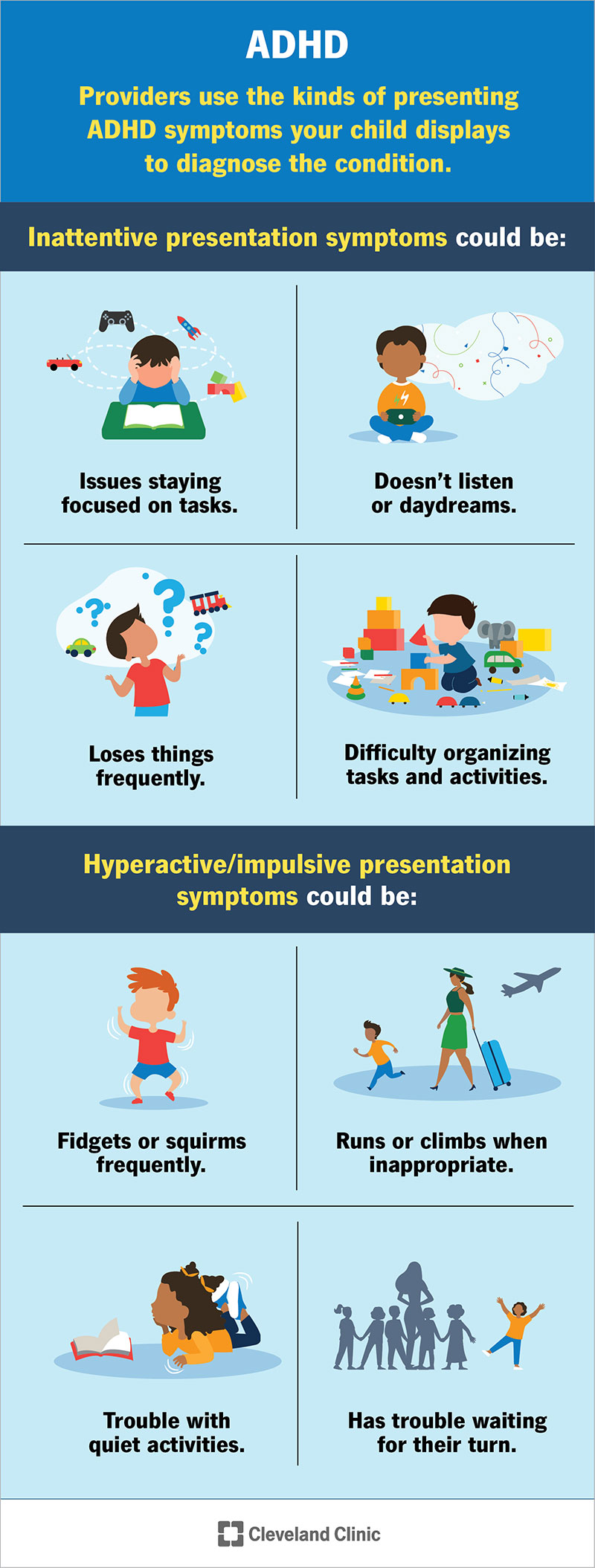Expert ADHD Treatment for Personalized Care
Exploring Effective ADHD Therapy Alternatives for All Ages
The complexities of Focus Shortage Hyperactivity Disorder (ADHD) existing distinct challenges across various age groups, necessitating an extensive expedition of efficient treatment choices. A combination of behavior treatments, pharmacological treatments, and way of life alterations has actually shown guarantee in attending to the diverse needs of individuals with ADHD.
Recognizing ADHD and Its Influence
Attention-Deficit/Hyperactivity Problem (ADHD) is a neurodevelopmental problem defined by persistent patterns of inattention, hyperactivity, and impulsivity that can considerably affect numerous aspects of a person's life. It usually manifests in childhood years, although signs and symptoms can continue into the adult years. The core signs of ADHD can interfere with academic efficiency, prevent social communications, and make complex occupational undertakings.
People with ADHD commonly fight with maintaining concentrate on jobs, arranging tasks, and following up on instructions, which can cause academic underachievement (Depression Treatment). In social contexts, impulsivity may lead to troubles in developing and sustaining partnerships, as people might interrupt discussions or make rash choices without thinking about consequences
Additionally, ADHD can co-occur with other mental health and wellness problems, such as anxiousness and depression, further making complex medical diagnosis and therapy. The variability in symptom discussion indicates that ADHD can influence people differently, demanding a personalized method to management. Recognizing ADHD's complex impact is essential for developing effective approaches that support individuals in browsing everyday obstacles and accomplishing their potential. Comprehensive awareness of ADHD's nature and effects lays the groundwork for exploring appropriate treatment options customized to every individual's needs.
Behavioral Therapies for ADHD
Numerous behavior therapies have been established to successfully deal with the difficulties related to ADHD, focusing on changing certain habits and fostering essential skills. Among the most acknowledged approaches are cognitive-behavioral therapy (CBT), moms and dad training, and social skills training.
CBT aids people recognize and change adverse thought patterns and habits, promoting a more favorable outlook and enhanced self-regulation. This treatment often includes functional approaches for handling impulsivity and improving organization. Parent training programs encourage caretakers by furnishing them with strategies to reinforce positive behaviors and set regular limits, which can be specifically helpful for youngsters with ADHD.
Social abilities training is an additional essential part, training people with ADHD how to engage successfully with peers - Depression Treatment. This strategy usually involves role-playing and responses to improve communication, cooperation, and dispute resolution skills
Incorporating these behavioral therapies into a comprehensive treatment plan can considerably boost functioning and lifestyle for individuals with ADHD. Ultimately, the performance of these therapies depends upon tailored techniques that consider the special requirements of everyone, consequently cultivating durability and versatility in day-to-day live.
Medication Options Available
For lots of people with ADHD, medicine can play a significant function in managing signs and improving overall performance. The two primary groups of drugs recommended for battling depression ADHD are stimulants and non-stimulants.
Stimulants, such as methylphenidate and amphetamine-based medicines, are one of the most generally made use of therapies. These medications function by increasing the levels of neurotransmitters, specifically dopamine and norepinephrine, in the mind, which aids enhance focus and reduce impulsivity and attention deficit disorder. They usually yield fast results, making them a preferred option for several people.

It is important for doctor to conduct a comprehensive assessment to determine one of the most suitable drug based upon private demands, case history, and potential adverse effects. Routine follow-up and surveillance are also vital to ensure the effectiveness of the selected treatment and to make any needed adjustments.
Way Of Living Adjustments to Take Into Consideration
Taking care of ADHD successfully prolongs beyond drug, as lifestyle modifications can dramatically enhance overall wellness and signs and symptom control. Integrating organized regimens is important; constant routines assist individuals with ADHD handle their time effectively and reduce sensations of bewilder.
Routine exercise is an additional vital element. Workout not only helps to enhance focus yet additionally increases state of mind and minimizes tension degrees. Tasks such as yoga or group sporting activities can be particularly advantageous, promoting both physical health and fitness and social interaction.
Nutrition also plays a crucial function. Depression Treatment. A balanced diet abundant in omega-3 fatty acids, entire grains, and lean proteins can add to enhanced emphasis and cognitive function. Limiting sugar and processed foods is recommended, as these can aggravate hyperactivity and impulsivity
Sleep health is vital for managing ADHD symptoms. Developing a normal sleep schedule and producing a relaxed setting can improve sleep quality, bring about much better attention and psychological regulation.
Alternate and Holistic Techniques
Alternative and all natural helpful resources techniques to ADHD treatment provide a varied variety of alternatives that match traditional techniques. These techniques typically concentrate on way of life adjustments, nutritional treatments, and therapeutic practices that intend to improve general wellness while resolving ADHD symptoms.

Mindfulness and behavior treatments are also gaining grip as holistic treatments. Practices such as yoga exercise, meditation, and cognitive-behavioral therapy can cultivate self-regulation and improve attention. These methods support emotional strength, which is specifically advantageous for individuals with ADHD.
Natural supplements, such as ginkgo biloba and ginseng, are often discovered; however, it is essential to seek advice from health care experts prior to integrating these into treatment plans. While alternative and holistic approaches can offer valuable assistance, they need to preferably be utilized in combination with evidence-based treatments to accomplish ideal results for managing ADHD across all ages.
Verdict
In summary, efficient ADHD treatment demands an extensive strategy that includes behavioral treatments, medicine, lifestyle adjustments, and all natural methods. This diverse approach alternative treatments for depression highlights the significance of personalized treatment in dealing with the diverse demands of individuals with ADHD across all age teams.